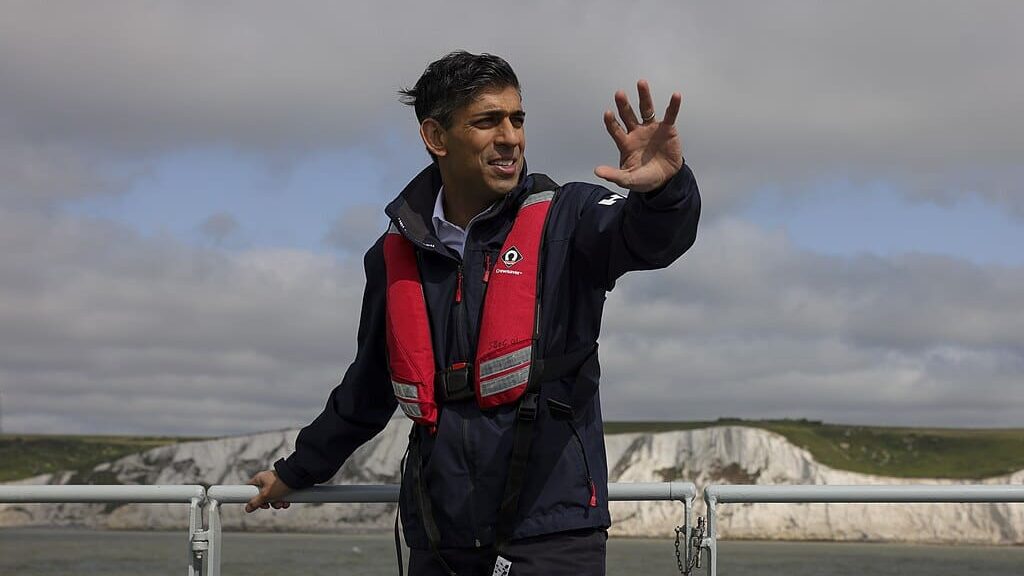
PM Rishi Sunak visiting Border Force in Dover.
UK Prime Minister, CC BY 2.0, via Wikimedia Commons
British Prime Minister Rishi Sunak’s general election campaign got off to a poor start towards the end of last month but did briefly appear to be looking up following his June 4th head-to-head debate with Labour leader Sir Keir Starmer. Very briefly, in fact, now that a catastrophic D-Day gaffe just two days later, on June 6th, has left the Conservatives in arguably their worst position yet and has turned the political discussion to whether Sunak could lose his own (typically safe Tory) Parliamentary seat.
The British political scene exploded on Thursday when the prime minister left D-Day commemorations in Normandy early to take part in an interview with ITV, while senior Labour figures and Reform UK’s Nigel Farage stayed for the full stretch.
Cue four days of blasting rhetoric from all sides (Tories included) about Sunak caring more about his career than the 80th anniversary of D-Day.
In a televised debate on Friday against representatives from six other major (and, in some cases, not-so-major) parties, which he won by several metrics, Farage said Sunak “deserted” veterans in Normandy, showing that “we actually have a very unpatriotic prime minister.”
We have a very unpatriotic Prime Minister. #BBCDebate pic.twitter.com/PggObnWYDk
— Nigel Farage (@Nigel_Farage) June 7, 2024
Even Conservative cabinet minister Penny Mordaunt, who was sent to represent her party in the debate, described her boss’ actions as “completely wrong,” prompting some claims that she had thrown her leader under the bus.
Sunak was quick to apologise for his mishap and has since expressed his hope that veterans can find it in their hearts to “forgive me.” But it was too late. Indeed, one senior Tory advisor couldn’t find it in his heart to forgive the prime minister, quitting from his role on Friday and slamming the Conservative leadership team as “a bunch of mendacious, incompetent and disreputable clowns.”
The 80th anniversary of D-Day has been a profound moment to honour the brave men and women who put their lives on the line to protect our values, our freedom and our democracy.
— Rishi Sunak (@RishiSunak) June 7, 2024
This anniversary should be about those who made the ultimate sacrifice for our country. The last thing…
Respected political insider Tim Shipman wrote in The Sunday Times that the whole affair—much of the response to which has clearly been over-egged for political reasons—“stopped dead what had been a relatively encouraging 48 hours for the Conservatives,” and that there was even “fury” at Buckingham Palace.
Sunak has since been forced to answer questions about whether he will stand down as Tory leader before the July 4th election, which is hardly the most positive sign of the state of his campaign.
Attention is also increasingly turning to the prospect of the prime minister losing his own Richmond seat—described by Politico as “wildly safe”—in the upcoming national vote. This is unlikely but is yet another sign of just how low the Conservatives are sinking.
Perhaps Sunak’s only remaining hope of coaxing voters to his side is the launch of his Conservative Party manifesto on June 11th. But anyone expecting that to make a major difference to the political layout of the land has their head buried very deeply in the sand.
